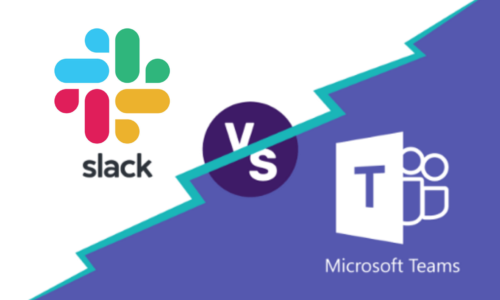In today’s highly competitive eCommerce market, even minor weaknesses and delays can result in significant losses and bring your business to a standstill. As a result, online store owners must be flexible, intelligent, and up-to-date with the latest trends to stay ahead of the competition. One effective strategy retailers can adopt is building a headless commerce structure that can cater to the increasing demands of users. This approach prepares the website to handle the growing traffic and improves the user experience, thereby enhancing the business’s overall performance.
The eCommerce industry also uses cloud services to enhance agility and flexibility. Cloud technology has proven particularly beneficial in 2020, as organizations that used cloud services were better equipped to handle the challenges posed by the pandemic. Conversely, those who didn’t use cloud services experienced significant disruptions to their services and faced problems in communication with employees. Cloud-based tools and applications offer businesses a secure way to store sensitive data and improve productivity. This article will delve into the advantages of cloud computing in the eCommerce industry.
Five Cloud Computing Possibilities in eCommerce

Cloud hosting offers a viable alternative to traditional on-site data storage. Rather than relying on a single computer to store information, cloud technology allows businesses to store data on multiple devices connected to separate servers in different geographic locations. These machines are interconnected and function as a cohesive system, providing businesses access to a cluster of servers that harnesses the processing power of several devices. This cluster is commonly referred to as a cloud and a popular choice for most eCommerce businesses.
Due to their unique functionality, online stores require additional support and flexibility to manage databases, secure personal data, process payments, and track sales. As a result, adopting or migrating to cloud technology can provide an ideal solution to address these challenges that traditional devices may not be able to solve. The following section will explore the five primary ways online retail stores can leverage cloud computing to their advantage.
1. Performance

Website speed is a critical factor in making an e-commerce business successful. Research indicates that users will likely abandon a page if it takes more than three to four seconds to load. During peak holiday periods, a sudden surge in traffic can cause your site to slow down and become unresponsive, leading to increased bounce rates and decreased conversions.
Statistics suggest that eCommerce store owners should aim for a site speed between 0-2 to 0-3 seconds to achieve maximum conversion rates. While these numbers are ideal, a more realistic benchmark is 4 seconds maximum. Research also shows that an increase in page load time can result in a 1.2% decrease in conversion rates for every additional second of waiting.
One of the primary advantages of using cloud technology for eCommerce businesses is improved availability and reduced network latency. A 24/7 team is dedicated to providing consistent cloud services, ensuring your site is always available to customers. Furthermore, outstanding performance and speed can positively impact SEO, as search engines rank sites that load quickly and provide a better user experience. This can grow traffic to your eCommerce store, leading to higher conversions and a strong flow of organic visitors. By leveraging cloud computing, your website can work seamlessly, enhance user-friendliness, and ultimately help your eCommerce business thrive in terms of SEO and overall performance.
2. Protection of Data

Online stores handle significant volumes of sensitive user data, including personal addresses, credit card numbers, and phone numbers. Due to the high level of trust that customers place in online stores, it is crucial to ensure that their data is always protected. Any breach of this sensitive data can damage the store’s reputation irreparably.
Fortunately, cloud technology provides a secure data storage solution where trained professionals monitor and protect the data. Robust IT policies and cutting-edge technologies are employed to safeguard against cyber-attacks and data breaches. Additionally, independent third-party auditors regularly review cloud storage providers to ensure they meet the highest data protection and security industry standards.
Specific industry standards come into play when it comes to ensuring the security and availability of cloud services. For example, the Standards for (SOC) outline specific criteria for evaluating a cloud service provider’s access to information systems and the security, processing integrity, and confidentiality of their systems. In addition, cloud providers that process payments for online stores must comply with Payment Card Industry (PCI) requirements to ensure the safety of customer payment information.
3. Effective and Better Data Analytics

Online sales generate vast amounts of data from various channels, including websites and social media. This data can easily overwhelm your systems and get lost in silos. Cloud analytics provides a valuable solution to consolidate, store, and share data across multiple channels.
Cloud analytics is the practice of storing and analyzing data in the cloud, with the goal of extracting valuable business insights. Compared to on-premises analytics, migrating to the cloud allows for a more comprehensive view by combining all company data sources.
One of the significant advantages of cloud analytics is the consolidation of data, which facilitates better communication among teams, such as marketing, sales, and customer service, regardless of location. Additionally, cloud analytics allows for the real-time processing of big data sets to identify patterns, forecast future demands, and extract other relevant information.
4. Lowers the Expense

Cloud computing offers significant cost savings for eCommerce stores by eliminating the need to purchase expensive equipment. This allows businesses to allocate their resources toward other crucial requirements, which is especially beneficial for rapidly expanding stores. Cloud computing provides a quick and convenient way to raise resources by avoiding the inconvenience and cost of purchasing new equipment.
Additionally, the large data centers required for on-premises systems can consume significant electricity and space, leading to higher bills and a reduced area for eCommerce stores. In contrast, cloud applications can help reduce electricity bills and increase available space.
Cloud solutions can also help businesses save on labor and maintenance costs, allowing IT staff to focus on more critical development projects. Employees can also benefit from cloud-based tools, such as video conferencing services and accounting software, designed to organize and securely store company data and finances. Increasing labor productivity these factors can positively impact the business’s overall success.
5. Ease of Scaling

The COVID-19 pandemic has highlighted the need for retail businesses to be prepared for significant changes in consumer needs. Cloud computing in eCommerce has become an essential tool to remain competitive and meet market demands. Even large retail stores had to adapt quickly to new expectations during the pandemic.
For instance, some stores, including Walmart, lacked an online presence in certain countries. Self-isolation and quarantine measures forced retailers to respond swiftly. Cloud computing was crucial in scaling up businesses and entering new markets. Companies that were unable to adapt quickly lost ground to those that could.
Cloud computing enables the simple scaling up or down of IT solutions, making adding or removing resources on demand easy. With this tool, businesses no longer have to worry about storage limitations or the fear that customers will be unable to access their online store.
Conclusion

Cloud services are driving a revolution in the eCommerce marketplace, transforming how all stakeholders engage with online retail. eCommerce businesses have already experienced the advantages and efficacy of cloud technologies. Cloud computing is a game-changer for eCommerce, providing online retailers with direct benefits such as data security and boosting customer acquisition through improved search rankings. However, the potential benefits of the cloud go far beyond what’s been listed. E-commerce’s future will likely be characterized by innovations and unexpected changes that will propel businesses to new heights.




